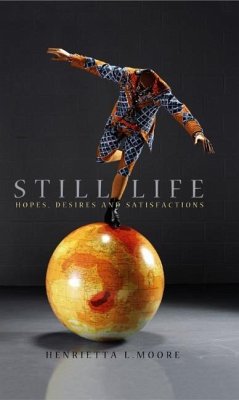How adequate are our theories of globalisation for analysing the worlds we share with others? In this provocative new book, Henrietta Moore asks us to step back and re-examine in a fresh way the interconnections normally labeled 'globalisation'.
Rather than beginning with abstract processes and flows, Moore starts by analyzing the hopes, desires and satisfactions of individuals in their day-to-day lives. Drawing on a wide range of examples, from African initiation rituals to Japanese anime, from sex in virtual worlds to Schubert songs, Moore develops a theory of the ethical imagination, exploring how ideas about the human subject, and its capacities for self-making and social transformation, form a basis for reconceptualizing the role and significance of culture in a global age. She shows how the ideas of social analysts and ordinary people intertwine and diverge, and argues for an ethics of engagement based on an understanding of the human need to engage with cultural problems and seek social change.
This innovative and challenging book is essential reading for anyone interested in the key debates about culture and globalization in the contemporary world.
Rather than beginning with abstract processes and flows, Moore starts by analyzing the hopes, desires and satisfactions of individuals in their day-to-day lives. Drawing on a wide range of examples, from African initiation rituals to Japanese anime, from sex in virtual worlds to Schubert songs, Moore develops a theory of the ethical imagination, exploring how ideas about the human subject, and its capacities for self-making and social transformation, form a basis for reconceptualizing the role and significance of culture in a global age. She shows how the ideas of social analysts and ordinary people intertwine and diverge, and argues for an ethics of engagement based on an understanding of the human need to engage with cultural problems and seek social change.
This innovative and challenging book is essential reading for anyone interested in the key debates about culture and globalization in the contemporary world.
"A very rich book, both in challenging ideas and in vivid ethnographic examples that help to ground these ideas. The plea for a more forward-looking notion of culture and more interest in people's creativity in relation to new technical and politico-economic developments is most welcome and gives broader relevance to this book.
Its originality and masterful handling of a wide range of theories and ethnographies make this inspiring material for teaching both at the undergraduate and graduate level." -- Peter Geschiere, University of Amsterdam
Its originality and masterful handling of a wide range of theories and ethnographies make this inspiring material for teaching both at the undergraduate and graduate level." -- Peter Geschiere, University of Amsterdam








